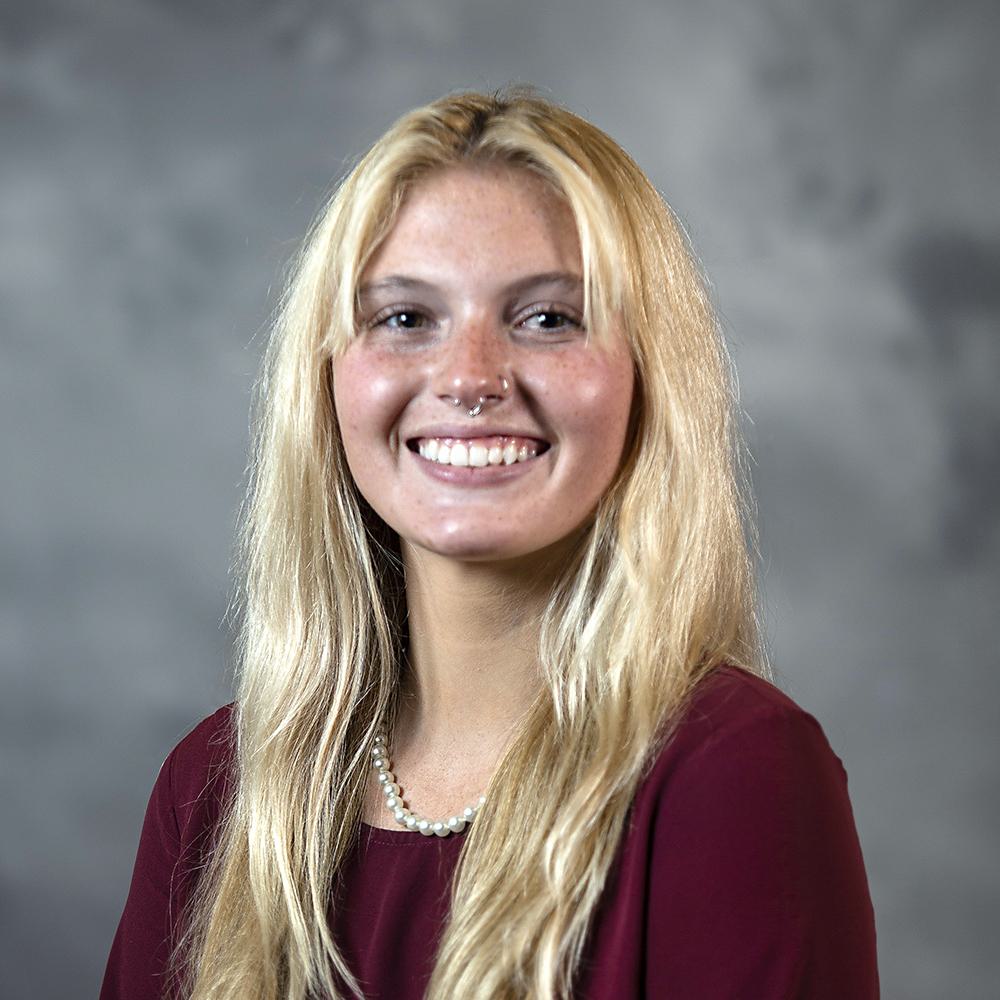
Damiana Colley
Criminology and Criminal Justice and Psychology / Berlin, MD
About
What made you decide to enroll at the University of Maryland?
Prior to my college career, I worried about whether or not I would be able to pursue higher education because of my family's financial situation. My mother is a single parent who supports both my sister and I, and works very hard to do so. My father supplies no financial assistance, so it seemed implausible for me to attend college, even though it has always been a dream of mine to be a first-generation student. Nonetheless, I have persevered to ensure I would go to college and fulfill my goals. For as long as I can remember, I have wanted to work in the FBI as a criminal psychologist. The criminology and criminal justice program here is what particularly caught my eye and helped me decide that this was the place for me. When I applied to the University of Maryland in the fall of 2019, I realized that I could begin to build this career because of the generosity of individuals like you.
What major/career path do you plan on pursuing and how did you select that path?
For as long as I can remember, I have wanted to work in the FBI as a criminal psychologist. I plan to continue pursuing this path, however, I hope to focus more on issues surrounding sex crime and domestic violence. I hope to focus more on these issues, as the combination of my two majors will provide me with ample experience to help those in need. I hope to obtain an internship working with these issues in order to expand my hands-on knowledge. I selected this particular path because of the passion I felt when taking classes surrounding these issues. I realized it was something that I wanted to contribute to and become a voice for those who had none.
Activities I do outside of class or community service/volunteer activities I'm involved with:
In the last year, I have completed the Violence Intervention Ambassador Program through the C.A.R.E. office at Maryland. I was trained on various topics including consent, power-based violence, bystander intervention, supporting survivors, and more. I was able to learn how to prevent, recognize and respond to systemic violence through this program. Not only did this program expand on issues I am passionate about, but allowed me to take a position in which I can take direct action to stop them. This has shaped me as a person because now I have the skills and opportunities to make a difference not only in our community but in the surrounding world as well. I am able to practice activism and my leadership knowledge. This program has also allowed me to participate in volunteer opportunities, professional development, and more, which I can also seamlessly incorporate into my academic majors. Overall, this public service activity has made me a more empathetic, caring, determined individual who seeks to be a figurehead for social justice in the present and future. Since 2020, I have been a part of the Women's Network at UMD as well as Preventing Sexual Assault (PSA). This past year, I became further involved with PSA as the organization's historian. I enjoy creating fundraisers, informative pamphlets, and more to help spread awareness on issues such as domestic violence, intimate partner violence, and sexual assault. This is something that I am extremely passionate about and am grateful to be a part of.
Aside from academics, what else do you hope to take away from your time at Maryland?
I plan to apply my knowledge of the criminal justice system and psychological theories to defend women's rights. Through psychology, I have learned about both masculine and feminine norms, and while this is easier said than done, I believe that unlearning social expectations of genders should be a start. Because of my background in American rights, spreading awareness through assemblies and protests is a way to express to society that we, as women, are looking for a change of expectations. I believe that if l establish myself as a feminist activist early on in my academic career, the impact I wish to achieve as a leader will be stronger long term. In hopes of becoming a figure who works closely with the government, I hope to express my concerns about the inequality that the legal and societal systems impose in America. I will cite my psychological background of the harms of gender-based violence and unequal rights as well as use my knowledge of the overarching, seemingly more authoritative, legal system to ensure change is made in a just and equitable way.
What are your future goals after graduation?
My goals after graduation are plentiful. I want to attend graduate school and get my Ph.D. in clinical psychology. After this, I hope to work for the FBI or another government head in order to interact with victims of violent crime, and help them come to terms with victimization through the degree I have obtained. Moreover, I hope to research how my double major will aid in profiling criminals in crimes. Overall, I want to help people, especially those who have gone through traumatic situations.
My favorite part of being a Maryland Promise Scholar:
My favorite part of the Maryland Promise Program is Clark Day. I really enjoy having the opportunity to meet with my donors and allow them the chance to see what I am doing with their generosity. I enjoy the connections made with other donors as well, as interacting with these people shows me that I can one day be successful and give back to future students who are in my situation. This event allows me the possibility to share my success with people that I admire.